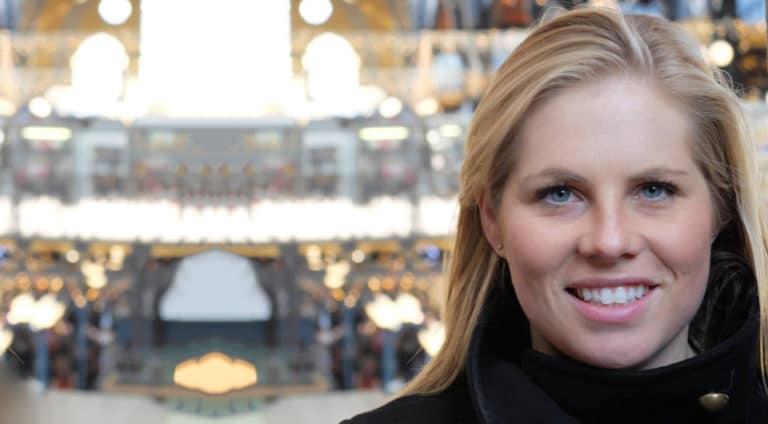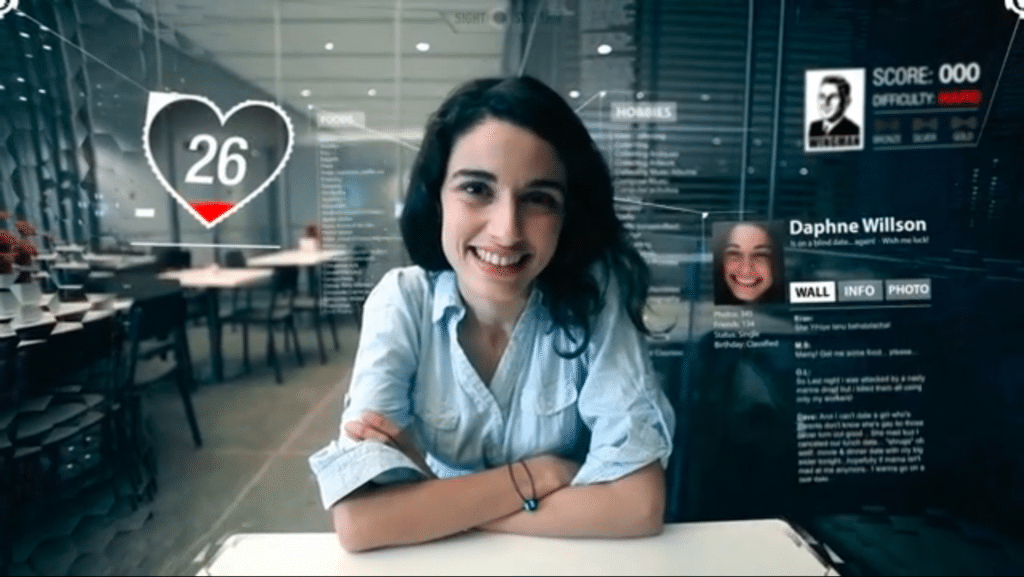Legal Views with Unity’s Laura Jeffords Greenberg
“Hegge.” “Hooge.” “Huhgge.” Laura Jeffords Greenberg, Senior Legal Counsel at Unity Technologies, gives us the best rendition of “hygge,” the hard-to-pronounce Danish word that approximates “coziness.” Greenberg recently left Littlstar in Manhattan for the much cooler Copenhagen and is learning how to master complicated vowel sounds in Danish. “Mispronounce one vowel and they can’t understand you,” she laughs.
The native Californian first went from college and law school in Los Angeles to Europe when her husband accepted a job in Austria. A few months later she joined Red Bull Media House, overseeing the legal aspects of the brand’s “beyond ordinary stories.” The ability to explain both the European and American law perspectives helped her dive into the new technologies that Red Bull was experimenting with, particularly in the realm of licensing and distribution.

Grab Risk by the Horns
While working at Red Bull, a company known to take big risks, “the opposite of what lawyers do,” she adds, she learned to manage and mitigate corporate exposure when dealing with new technologies. Comfortable around digital innovation–Laura grew up in San Jose, part of the Silicon Valley epicenter, where technology was spoonfed–she was undaunted by the budding complexity that Red Bull’s media distribution deals would generate.
While working at Red Bull, a company known to take big risks, “the opposite of what lawyers do,” she adds, she learned to manage and mitigate exposure when dealing with new technologies.
The introduction to new technologies fostered a genuine passion in VR, which led to Laura’s 2017 transition to Littlstar in New York. She would be charged with providing counsel on ordinary media distribution issues, as well as the unique challenges specific to 360 and immersive content.
For instance? “Distribution times differ because of transcoding, for example.” She continues, “The mode of distribution is mostly the same as with the regular media industry, and is governed by standard contracts, but with VR, you have issues like viewership.
Media distributors have to prepare themselves to work with vastly different numbers,” Laura said with a slight grin. The numbers might be lower but the quality of the media engagement is higher. Laura’s job included educating members of the traditional media industry to adjust their expectations.
She continues, “For instance, the mode of distribution is mostly the same as with the regular media industry, and is governed by standard contract terms,, but with VR, you have issues such as file size and viewership.
Media distributors have to prepare themselves to work with vastly different numbers,” Laura said with a slight grin. The file size might be much larger and the viewership numbers might be lower but the quality of the media engagement is much higher. Laura’s job included educating members of the traditional media industry to adjust their expectations.
Hej Denmark
The urge to move back to Europe weighed on both Laura and her husband and she lucked into an amazing opportunity at Unity Technologies–in her city of first choice, Copenhagen, no less–in the role of Senior Legal Counsel. Not only would she have the chance to solve hard problems, but she could help steer the company’s legal leadership in it’s core technology.
The democratic work environment has also been a big plus at Unity. Being able to travel and speak at VR conferences does not fall under her primary responsibility, certainly not in terms of her legal role, but Unity sees the value in her being out on the field. “In order to be a good lawyer you need to understand the business. When I draft contracts, I have to have a full understanding of what is going on in the industry, what is cutting-edge, what is happening in the VR landscape. It helps me negotiate.”
The Future is legal
The urge to move back to Europe weighed on both Laura and her husband and she lucked into an amazing opportunity at Unity Technologies–in her city of first choice, Copenhagen, no less–in the role of Senior Legal Counsel. Not only would she have the chance to solve hard problems, but she could help steer the company’s legal leadership in it’s core technology.
The democratic work environment has also been a big plus at Unity. Being able to travel and speak at VR conferences does not fall under her primary responsibility, certainly not in terms of her legal role, but Unity sees the value in her being out on the field. “In order to be a good lawyer you need to understand the business. When I draft contracts, I have to have a full understanding of what is going on in the industry, what is cutting-edge, what is happening in the VR landscape. It helps me negotiate.”

Another potential legal issue worth pondering is the impact of feeling immersed in emotion that comes with either headset or 360 experiences. If VR is “the empathy machine,” it can theoretically make viewers feel immersed in the assault. Is it a violation? Who is responsible for that kind of behavior? And even then, with the international nature of VR (a viewer in China can be affected by a work from Chile), where is the correct venue for the case? Increasingly, Laura suggests, we will have to deal with these kind of complex issues about what is real and what is not; a legal version of is it virtual or is it reality?
Much of what is true for traditional video is the same for VR in terms of privacy or copyright, though one thing that pops up is that people think because VR work is a new medium, it is okay to steal. “But, no, obviously someone is creating something in a tangible form, so yes, copyright law does apply,” Laura insists.
Fortunately, there are no legal penalties (yet!) for stealing cultural concepts like “hygge.” Immersing oneself in hygge, with its fireplaces and candles, in the midst of winter seems like a great idea, and frankly, a lot less complicated than navigating the emerging intricacies of new media and law. Though for Laura Jeffords Greenberg, the latter is still plenty fascinating.





